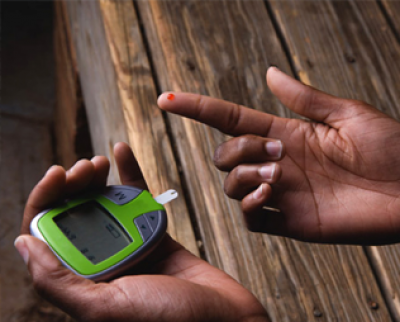Project Summary
Diabetes currently affects around 30% of the adult population of Bangladesh either as pre-diabetes or fully expressed diabetes mellitus. The problem of diabetes and its complications is a growing concern among communities, health service providers and policymakers, yet raw data on the magnitude and underlying causes of the problem are scarce, especially in rural areas. Underlying the increasing prevalence in Bangladesh are patterns of dietary change, changing lifestyles and increases in other risk factors like lack of exercise and smoking.
Our study is part of the Global Alliance of Chronic Diseases/MRC diabetes research initiative and seeks to generate data on disease and risk-factor prevalence in rural villages in Faridpur district. We will also evaluate two interventions to improve the detection, management and prevention of diabetes in these deprived populations.
The first is an 'mHealth' intervention that will use mobile phone technology to send health promotion information and targeted diabetes prevention and management messages to the population. The second intervention will focus on participatory community groups, engaging communities in a series of meetings in which the population themselves identify and address factors that may increase their risks of diabetes or prevent the effective management of the disease.
This approach has proved highly effective in relation to neonatal health but ours is the first study of its kind to evaluate impact of the approach on a chronic, non-communicable illness such as diabetes. It is hypothesised that collective community messaging and engagement in this way will enhance awareness and trigger behaviour change leading to lower burdens of risk factors and disease indicators, measured through large community surveys.
The simultaneous evaluation of the two interventions in different areas will allow a comparison of the benefits of each compared to a 'control' area that only receives standard diabetes prevention and care services. A strong focus on implementation and process evaluation will identify the likely scalability and sustainability of these interventions should they prove effective.
 Close
Close


